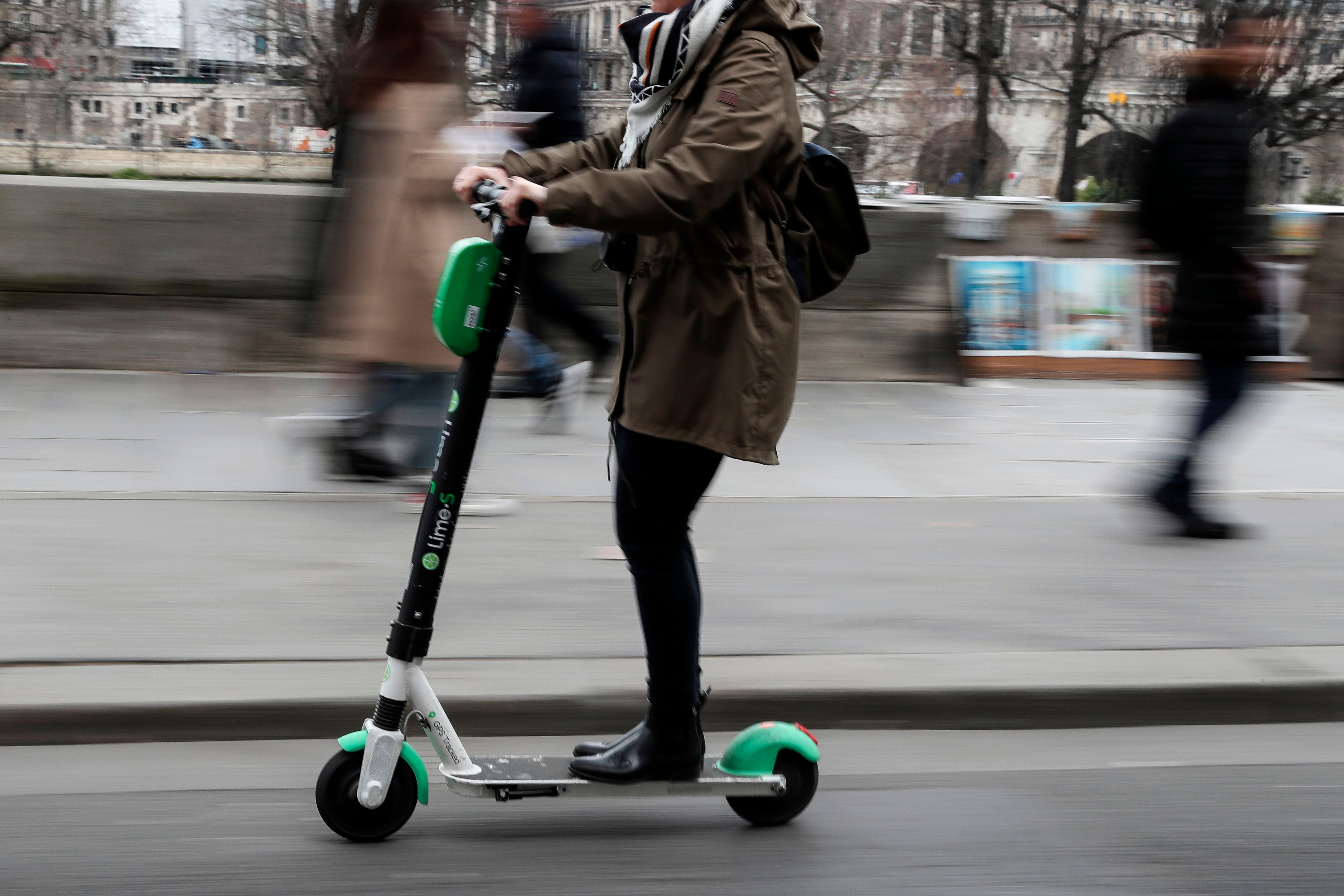Rental e-scooters to be trialled in London from June
Capital seeks to shift towards greener modes of transport by emulating success of schemes elsewhere in Europe

Your support helps us to tell the story
From reproductive rights to climate change to Big Tech, The Independent is on the ground when the story is developing. Whether it's investigating the financials of Elon Musk's pro-Trump PAC or producing our latest documentary, 'The A Word', which shines a light on the American women fighting for reproductive rights, we know how important it is to parse out the facts from the messaging.
At such a critical moment in US history, we need reporters on the ground. Your donation allows us to keep sending journalists to speak to both sides of the story.
The Independent is trusted by Americans across the entire political spectrum. And unlike many other quality news outlets, we choose not to lock Americans out of our reporting and analysis with paywalls. We believe quality journalism should be available to everyone, paid for by those who can afford it.
Your support makes all the difference.Rental e-scooters are to be trialled in London from next month as the capital seeks to shift motorists away from polluting cars to greener modes of transport.
The e-scooters will have a maximum speed of 12.5mph – below the 15.5mph limit set by the Department for Transport – and be limited for use in selected areas in the west, centre and east of the capital.
They will be legal to use in bicycle lanes and on roads, where users of private e-scooters remain banned.
Dott, Lime and Tier, whose scooters have become a popular addition to several European capitals including Paris and Madrid, will carry out the 12-month pilot scheme from 7 June.
Riders will be required to take an online safety course before their first hire.
London's scheme will initially be restricted to six boroughs: Tower Hamlets, Ealing, Hammersmith and Fulham, Richmond, City of London and Kensington and Chelsea.
Geo-fencing technology will be used to prevent e-scooters being used outside these areas.
Helen Sharp, leading the project for TfL, said: “We're doing all we can to support London's safe and sustainable recovery from the coronavirus pandemic, and it's clear that e-scooters could act as an innovative, greener alternative to car trips.”
Will Norman, London's walking and cycling commissioner, said: “The safety of those using e-scooters, as well as other road users and pedestrians, is absolutely paramount, so it's important that they are trialled in this rigorous way to ensure high standards.”
However the introduction of e-scooters has been opposed by some disability charities, which have warned about the impact on people with impaired vision.
Charity Guide Dogs has called for the sale of e-scooters to be banned, describing their use as “a serious safety issue for many people with sight loss”.
Others have warned about the impact on street clutter, and highlighted safety concerns after a three-year-old boy was injured when he was hit from behind by an e-scooter while walking on a pavement in Feltham, west London.
Join our commenting forum
Join thought-provoking conversations, follow other Independent readers and see their replies
Comments